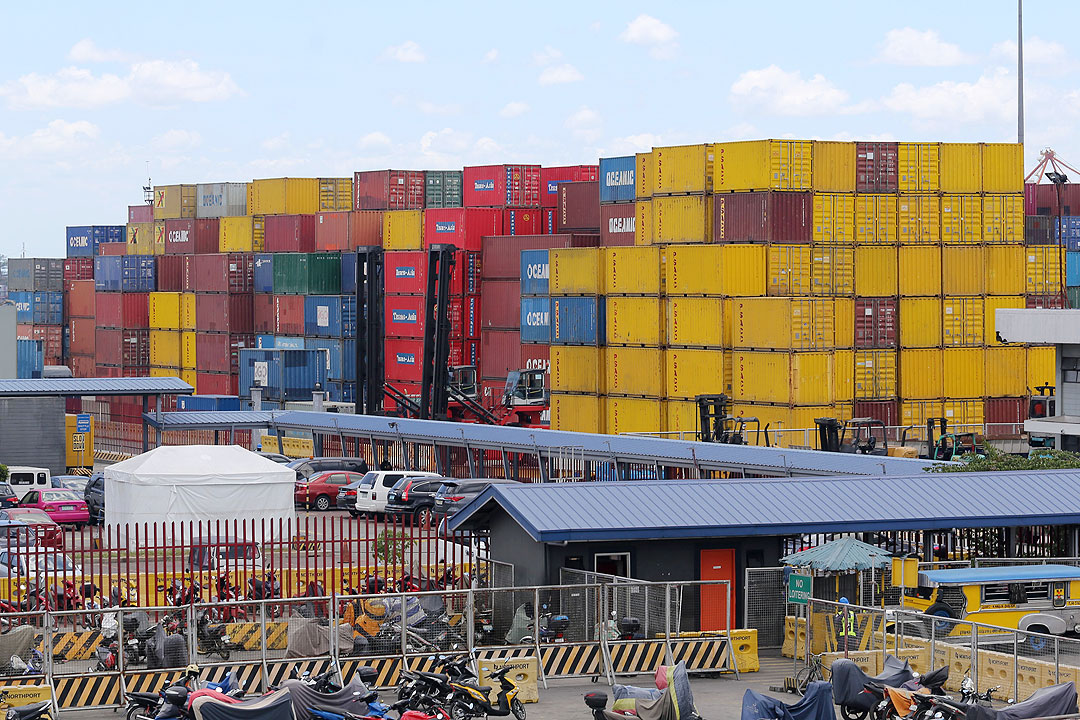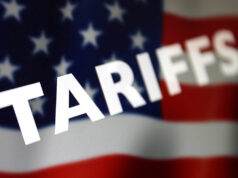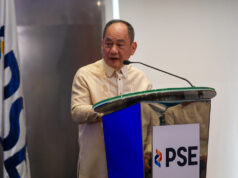Senators delay decision on RCEP

THE SENATE on Wednesday evening adjourned sessions for the election break, without giving its concurrence to the ratification of the Regional Comprehensive Economic Partnership (RCEP).
Senator Aquilino Martin L. Pimentel III, who heads the Foreign Affairs Committee and the primary sponsor of Senate Resolution 963, said he was “ready to sponsor” the RCEP during last night’s plenary, but no time was given for interpellation.
The Senate approved 168 bills and ratified eight Bicameral Conference Committee reports during Wednesday’s session before adjourning at 10 p.m.
“We cannot afford not to be a party to the RCEP,” told Mr. Pimentel in a Viber message to BusinessWorld. “The center of RCEP is ASEAN (Association of Southeast Asian Nations) and we are ASEAN.”
“Hence, I will take the long view. If we need to be patient then so be it. What is important is to be part of the world’s largest trade bloc and take advantage of the benefits of membership,” he added.
The RCEP between Australia, China, Japan, South Korea, New Zealand and the 10 members of ASEAN, namely Brunei, Cambodia, Indonesia, Laos, Myanmar, the Philippines, Singapore, Thailand and Vietnam, was signed in November 2020. It has been in force in 11 countries since Jan. 1.
President Rodrigo R. Duterte ratified the RCEP on Sept 2. Since then, the trade deal has been awaiting the Senate’s concurrence.
Asked about the delay, Senator Ana Theresia N. Hontiveros-Baraquel told BusinessWorld that “perhaps the Senate just wants all voices around the table heard, especially sectors that have been heavily hit by the pandemic.”
She cited the objections raised by agricultural and labor groups, who said they would be the “losers” in the swift ratification of the RCEP.
“The spirit of a free trade agreement is a give and take, open your market, and I will also open my market, so the lessening of tariff collections would be a necessary consequence, but then that should be made up for by the overall benefits of the agreement,” Mr. Pimentel said.
The Philippines’ participation in RCEP is expected to drive gross domestic product expansion above 6%, foreign direct investment growth to 49%, and export growth up to 15%, he added, citing Department of Trade and Industry (DTI) studies.
Trade Secretary Ramon M. Lopez expressed optimism that the Senate would eventually give its concurrence to the RCEP ratification when it resumes session on May 23.
“Our participation in RCEP is a matter of time. The Philippines could not afford to miss this,” he said in a statement. “It would be devastating to stay out of the agreement. It will be costly, and we will be missing a lot of opportunities. It sends a wrong signal to the international community, and this may impact the country’s effort in promoting competitiveness of our local industries as well as our ability to attract foreign direct investments, especially when compared with our ASEAN neighbors that are already part of the RCEP.”
The Trade chief said the delay might also affect other international trade deals the Philippine government is pursuing.
“While we understand the concerns raised by the groups of farmers on the RCEP agreement, we have assured them including the senators that these are well addressed in the agreement. We also understand that some senators need more time to study fully the RCEP,” Mr. Lopez added.
Various groups including the Federation of Free Farmers (FFF) have objected to the Philippines’ participation in the RCEP, citing the lack of preparedness of major economic sectors, such as agriculture.
“We oppose RCEP not because we fear competition. We just want to make sure that we have the proper resources and tools to compete in the open market. And we need to know if the government will be supportive and not suddenly betray us by unilaterally cutting tariffs and allowing excessive imports — as it is doing now,” FFF National Manager Raul Q. Montemayor said in a statement, adding the next Congress should decide on a critical matter such as RCEP.
University of Asia and the Pacific Senior Economist Cid L. Terosa said in an e-mail the delay in the Senate’s concurrence means the country will be unable to reap the benefits of the trade deal.
“I think our recovery will continue without it as of the moment, but moving forward we may not be able to capitalize on the potential market and economic benefits of RCEP,” he said. “The country will lose potential trade partners and benefits since RCEP would prioritize trade among participating countries.”
Calixto V. Chikiamco, Foundation for Economic Freedom president, said in a mobile phone message the delay is unlikely to affect Philippine economic recovery.
“It will cause hesitancy from some buyers but hopefully, not for long if the treaty is ratified when Congress resumes session in May. The delay in the ratification of RCEP may affect the orders of existing companies selling to RCEP countries, as companies in RCEP countries will enjoy much simpler and easier trade and Customs rules,” Mr. Chikiamco said.
The RCEP will help the economy’s recovery, alongside recent reform measures, such as amendments to the Retail Trade Liberalization Act and amendments to the Public Service Act (PSA), Chris Nelson, British Chamber of Commerce Philippines executive director, said by telephone.
“The benefits of RCEP, combined with these economic liberalization bills, will be a significant support to the Philippine economy,” Mr. Nelson said.
In a separate statement, Trade Justice Pilipinas said the delay in the RCEP’s ratification is a “welcome development and a small victory” for agriculture stakeholders.
“The agriculture stakeholders and workers have loudly spoken about the possible threats to livelihoods and jobs. At least for the time being, it seems the Senate has taken the side of caution and heeded the demand of the stakeholders,” the group said. — Alyssa Nicole O. Tan and Revin Mikhael D. Ochave



